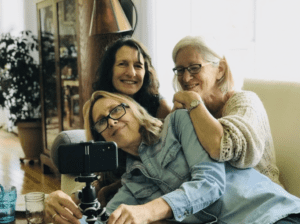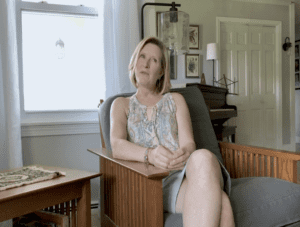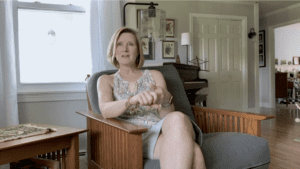Fast-forward to summer 2020, and the 13-member AVMA Board of Directors team is more than 50% women (including the student delegate. Further, Karen is the serving Vice-Chair, and the Chair is Lori Teller, another WVLDI founding member! In addition, the current Executive Director of the AVMA is also a woman (check out her profile), and the candidates for President-elect are both women, for the first time in the AVMA’s 202 year history.
What does Karen think of this transformation? She says with delight, “At the founding of WVLDI seven years ago, I could not see an easy or clear path for our AVMA leadership to become more diverse. As visible on this year’s JAVMA cover featuring the AVMA Board members, as well as the cover featuring the AVMA Officers, we have achieved the most diverse BOD in AVMA history. I am optimistic that with Diversity, Equity, and Inclusion as a major AVMA priority, we can maintain such diversity for years to come.”
It is clear that there would be no WVLDI without Karen Bradley. WVLDI’s success in its original mission to diversify AVMA leadership reflects Karen’s vision and leadership style.
Her legacy is WVLDI’s continuing aspiration to diversify veterinary leadership and deliver on the promise of our veterinary oath to “use our skills for the benefit of society through the protection of animal health and welfare.”
Karen Bradley went to veterinary school at the University of Georgia, but when she visited Vermont, she decided she would never leave. She became interested in organized veterinary medicine through the Vermont VMA and began working at a national level. She founded WVLDI in 2013 to develop more diverse leadership (focusing on women!) and became its first president. In forming WVLDI, Karen recruited a diverse and energetic Board that, from the beginning, included Y chromosomes. Don Smith and Doug Aspros, both powerful allies, were on the Board from the beginning.
Karen became a District I AVMA Representative in 2016 and obviously has moved ahead and been part of a major change in AVMA leadership demographics. WVLDI has thrived through her leadership and example, and the Founders quickly realized they had the opportunity to broaden the diversity and impact of the entire profession, even beyond the AVMA leadership. Following the governance protocols she set up, Karen and other founding Board members have now rotated off after their 3 2-year terms, leaving a legacy of an inspiring initial mission, a flat organizational structure, and a Board that embodies highly engaged servant-leadership.
Recruitment and inclusion of new Directors mean that WVLDI has now transitioned to its next-generation with Dr. Kimberly Ann Therrien. Each year, the strategic plan is revisited at the annual meeting during the AVMA meeting.
Today, WVLDI provides speakers at all major national veterinary meetings, trains speakers and supports student chapters by mentoring and giving pro bono presentations, promotes and supports candidates for leadership consistent with its mission, and has an ever-expanding and more effective social media presence.
Long, long ago (before Covid travel and socializing restrictions), in a land sort of far away (Vermont), WVLDI board members Dr. Joan Hendricks, Dr. Deb Stone, and Julie Kumble (photographed below) was hosted by Karen for a late spring weekend. We experienced her spacious Vermont country farm, family home, and considerable additional biomass: barn critters, a succession of massive English mastiffs, and cool kitties, one of whose dumb cat behavior is featured in an ongoing narrative on Karen’s lively Facebook page. Her human family includes a mission-driven environmentalist husband, Dave, and two impressive children, son Duncan and daughter, Ellery “Elle,” who is an award-winning young horseback rider. Like all good children of a certain age, they avoided the 3 of us as much as humanly possible—but politely! We learned about irrelevancies such as her professional flute-playing career and the charm of Montpelier (watch for an upcoming BLOG on WLVDI that features more about the fun we had on this visit).
 In interviewing Karen we found that, as a newly minted veterinarian, she had absolutely no ambitions to become a practice owner. In this, she was likely similar to most graduates. She imagined perhaps partial ownership.
In interviewing Karen we found that, as a newly minted veterinarian, she had absolutely no ambitions to become a practice owner. In this, she was likely similar to most graduates. She imagined perhaps partial ownership.
As happens in life, her ambitions were complicated by an unexpected wrench in the gears: she was diagnosed with breast cancer. Karen handled this life event with typical openness, humor, and a can-do attitude, combined with gratitude and staunch perseverance. Karen shared her saga in real-time on her Facebook story, and it was heart-wrenching and inspiring for her many followers.
 As we talked to her, she mentioned cancer and the travails of treatment offhandedly as an inconvenience. Again, her father-in-law and circumstances managed to conspire so that she actually became the sole owner of the practice, WHILE going through all of her cancer treatments! There is something about Karen’s matter-of-factness that is profoundly inspiring. You know, if you were to tell her she was your hero, she would wave you off. While Karen’s view of herself is that she is an example of an ordinary person with great mentoring, the impact is definitely to create heroine-worship.
As we talked to her, she mentioned cancer and the travails of treatment offhandedly as an inconvenience. Again, her father-in-law and circumstances managed to conspire so that she actually became the sole owner of the practice, WHILE going through all of her cancer treatments! There is something about Karen’s matter-of-factness that is profoundly inspiring. You know, if you were to tell her she was your hero, she would wave you off. While Karen’s view of herself is that she is an example of an ordinary person with great mentoring, the impact is definitely to create heroine-worship.
Her message, both in words and in her career and embodied actions, is: You can do it. You have value. We, veterinarians, have value. TAKE CARE OF YOURSELVES AND YOUR COLLEAGUES.
 However, the two women who owned at Onion River Animal Hospital modeled successful ownership. Further, they were very appreciative of her talents, and they were great mentors. Karen also credits her father-in-law with inspiring and supporting her to move beyond her limited aspirations. With his encouragement and practical advice, she moved toward considering partial ownership when the opportunity arose.
However, the two women who owned at Onion River Animal Hospital modeled successful ownership. Further, they were very appreciative of her talents, and they were great mentors. Karen also credits her father-in-law with inspiring and supporting her to move beyond her limited aspirations. With his encouragement and practical advice, she moved toward considering partial ownership when the opportunity arose.
When asked about her philosophy and what she would envision for the profession’s future, Karen responds with typical emotional intelligence: we need to value ourselves and show for ourselves and for new graduates that we ARE worth salaries that recognize our training and value. In a telling moment in the interview, she was describing herself in a slightly embarrassed fashion as a boss. Her body language said, “Who, me? Can I be a boss?” And then she recognized the moment and adjusted, becoming commanding but no less kind and attractive. She straightened up and authoritatively said, “BOSS!” with firm certainty.
We concluded our visit with a tour of the Onion River Animal Hospital, set in open Vermont farmland near Montpelier. With Karen as its owner, the practice has thrived and grown. It is clear that Karen and her practice are a major part of the Montpelier community. She leads locally as well as in the veterinary profession. The welcoming and spacious practice has recently been renovated to provide an even better client, patient, and care-delivery environment. Standing in her practice manager’s office, Karen shared an epiphany that reveals volumes about her leadership style. When her children visited the practice, they pointed out to her that she has literally structured the practice to support her employees and clientele, not herself: she has no office of her own!
Thank you, Karen, for setting us all up for success and for a greater impact on and through our beloved profession!
Profile by Dr. Joan Hendricks. Photos credited to Dr. Deb Stone.

